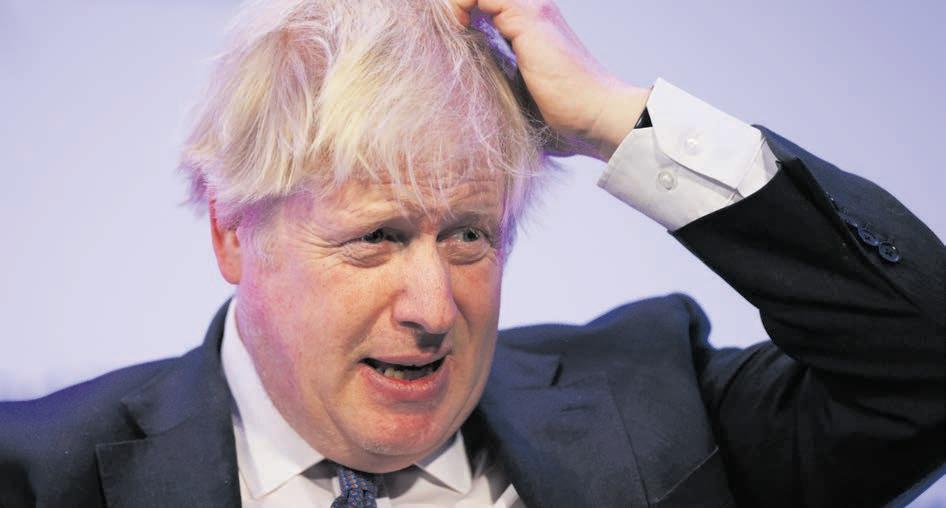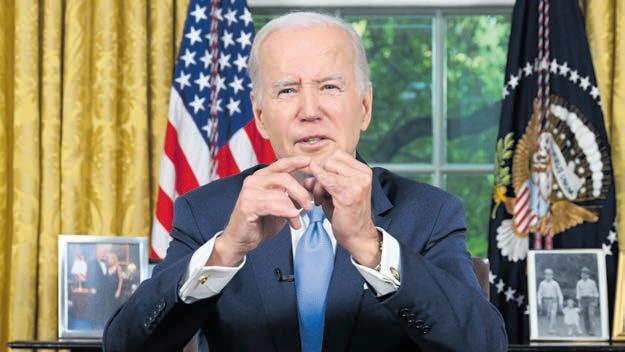
2 minute read
The Covid-19 inquiry should be a battle for Johnson, not for the Cabinet Office
from Monday 5 June 2023
by cityam
messages and emails can be deleted, paperwork can be destroyed and memories can become suddenly unreliable. Johnson said he had handed over everything, but Dilyn, the Johnsons’ dog, probably has the same attitude to homework that, proverbially, all dogs do. So there may be critical pieces of evidence already lost.
WHERE to start? Baroness
Hallett, the chair of the public inquiry into Covid19, demanded last week that the Cabinet Office provide her with WhatsApp messages between Boris Johnson, the former prime minister, and his advisers, as well as his contemporaneous notebooks and diaries. While Johnson indicated his willingness to cooperate, the Cabinet Office, the inquiry’s point of contact in Whitehall, refused.
Hallett set a deadline of 4.00 pm last Thursday. It expired and the government issued a statement announcing it would seek a judicial review of the inquiry’s request, arguing that it included material irrelevant to the inquiry’s scope. The disclosure of such material could inhibit ministers freely discussing policy in the future, for fear of “fishing trips” for confidential information by future inquiries.
This will not do. The Cabinet Office has picked the wrong hill on which to die, and is wrong in principle and in political reality.
Potential witnesses to the inquiry have two sets of legal representation, their own and that of the Cabinet Office. For serving ministers, each department may also have a legal view on the extent of disclosure. So wit- nesses could be placed in an invidious position, personally content for documents to be disclosed but frustrated by the stance of the Cabinet Office. They may oppose the judicial review, but are powerless to stop it. And they risk being seen as in cahoots with the Cabinet Office. One foolishness of the Cabinet Office’s position is that it was always in vain. Boris Johnson had already made it clear he would give everything he had to the inquiry - and he did so, bypassing the Cabinet Office and handing over his WhatsApp messages last
Friday. Still, he didn’t disclose anything from before May 2021, which is an enormous qualification. Many other witnesses are willing to cooperate fully. So Whitehall chose a reputationally damaging attitude for nothing, because the inquiry got the material it wanted in any case. Politics is about knowing which fights to pick. More fundamentally, though, this raises a question of propriety and authority. If there is a dispute over whether data are relevant to the scope of a public inquiry, who is to make that judgement? The Cabinet Office view seems to be that it should be them, as they’re the controller of the data, but that surely can’t be right. Hallett takes the view that she, as chair, should make the decision, which seems more reasonable, as she retains the power to withhold “irrelevant” material from the public domain. The government believes that the act of disclosing the material is selling the pass, which is worryingly secretive and, worse, suggests it doubts Hallett’s good faith and discretion. A practical issue is that it’s unlikely all the evidence still exists. WhatsApp










